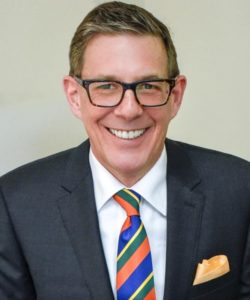Ask The Lawyer, By: Daniel A. Gwinn, Esq, Freedom of Speech?
QUESTION: I read an opinion piece by a FOX News commentator about the current “protests” online. I liked it on Twitter, and posted my approval of the piece with a link and some comments on Facebook. A co-worker read my post and comments and informed my boss, who owns the company. He said my comments were racist and inflammatory, and inconsistent with the company image. I was fired. What happened to my right to freedom of speech under the First Amendment of the Constitution?
ANSWER: Your rights under the First Amendment have not been affected. As private citizens, we have the right to speak our minds (with some restrictions) free from government censorship. With some exceptions, we cannot be punished by the government – federal, state, or local – for expressing our opinion, even if that opinion is unpopular.
The same is not true in the workplace. Private employers are pretty much free to discipline or even discharge workers if what they say at work on or off duty is viewed as harming the business or its reputation. There are several caveats: For example, if an employer’s restriction on speech affects only a certain class of employees it may be a form of illegal discrimination; if a restriction prevents employees from engaging in concerted activity, it may be illegal under the National Labor Relations Act. An employee who reports wrongdoing or suspected wrongdoing by his or her employer to a public body receives statutory protections under whistle-blower laws.
If your employer reasonably believed that your post would affect the company’s reputation, he was within his rights to fire you. Unrestrained expression of opinions on social media has placed many workers, both public and private, in hot water. Recently, the police chief of the Shelby Township force was placed on leave for an internet post calling for “body bags” for the “vicious subhumans” participating in demonstrations stemming from the death of George Floyd at the hands of Minneapolis police. The Grand Ledge School Board recently voted to terminate the employment of its school superintendent after his post on social media partially blamed Mr. Floyd for the fatal encounter with police. While public employees have greater leeway than those privately employed to express their First Amendment rights in circumstances where the expression concerns the public interest, even public employees can suffer adverse employment action based on their speech.
While most Americans know that the First Amendment protects free speech and assembly rights, many – including, some might say, President Trump – may not fully understand its protections. For example, a 2019 survey by the Freedom Forum, a nonprofit advocacy group, found that 65 percent of those surveyed believed that social media companies “violate users’ First Amendment rights when they ban users based on objectionable content they post.” (Another 16 percent of those surveyed believed the right to bear arms was guaranteed by the First Amendment.) In fact, despite the enormous power and popularity of social media platforms like Twitter and Facebook, they do not act on behalf of the government and, as private entities, can place restrictions on the speech permitted. The opposite is also true. Facebook’s Mark Zuckerberg has refrained from fact-checking posts that have been accused of being misleading in certain instances.
Many Americans also believe that the government can place no limits on what we say. But this is also a misunderstanding: The rights we have to be free of government restrictions on our speech under the First Amendment are not absolute.
The government can place reasonable restrictions on the time, place, or manner of speech – as long as the restrictions are not related to the content of the speech. Use of loudspeakers at night in a residential neighborhood can be prohibited, for example, as could a gathering that blocks traffic, or a protest that prevents people from accessing medical facilities.
Speech that incites “imminent” unlawful action can be prohibited, as can obscenity, child pornography, defamation and libel and “threats,” which have been defined as a “statement which … a reasonable person would foresee or would be interpreted … as a serious expression of intent to inflict bodily harm.” Planned Parenthood v American Coalition of Life Activists (9th Circuit, 2002). You may have also heard that it is unlawful to falsely cry out, “FIRE!” in a crowded theater, as foreseeable serious injury could result to the theater patrons within.
You have the freedom to post comments on Facebook or Twitter, or to gather with others outside the capitol in Lansing to protest social distancing orders you think go too far – but you may have to pay a price for expressing those opinions.
The lawyers at GWINN LEGAL PLLC are experienced attorneys and are happy to answer your questions. Give us a call for a free initial telephone consultation about your legal needs. For consideration of your questions in our web column, please submit your inquiry on the “Contact Us” page of our website at www.gwinnlegal.com.
Information provided on “Ask the Lawyer” is current as of the date of publication. Laws and their interpretation are subject to change. The material provided through “Ask the Lawyer” is informational only; it should not be considered legal advice. Submitting a question to “Ask the Lawyer” does not create an attorney-client relationship between the person submitting the question and GWINN LEGAL PLLC. To view previous columns, please visit our website.
ASK THE LAWYER
By: Daniel A. Gwinn, Esq
.Attorney and Counselor at Law
GWINN LEGAL PLLC
901 Wilshire Drive, Suite 550
Troy, MI 48084
(248) 247-3300
(248) 247-3310 facsimile
daniel@gwinnlegal.com
www.gwinnlegal.com
